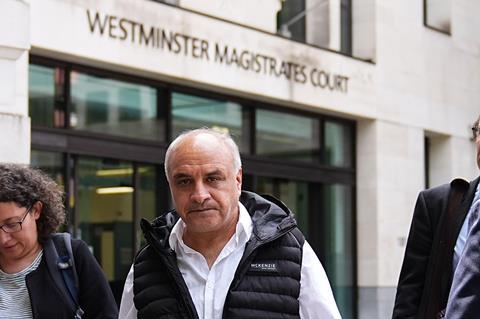Although the government’s law reform advisers agreed 40 years ago that the centuries-old common law offence of blasphemy should be abolished, two of the five law commissioners recommended replacing it with a new offence to protect all major religions. Anyone who published grossly abusive or insulting material relating to a religion while intending to outrage religious feelings would have faced imprisonment.

That minority recommendation reflected an overwhelming consultation response. Many who wrote to the Law Commission quoted Lord Scarman’s comment in the case of Whitehouse v Lemon: ‘In an increasingly plural society such as that of modern Britain, it is necessary not only to respect the differing religious beliefs, feelings and practices of all but also to protect them from scurrility, vilification, ridicule and contempt.’
Not surprisingly, the commission’s report sat on the government’s ‘too difficult’ shelf for more than 20 years. When the Labour government finally introduced legislation to abolish the common law offence of blasphemy in 2008, it prayed in aid its recent expansion of the Public Order Act 1986 to criminalise religious hatred offences.
Read more
Free speech includes right to express views that ‘offend, shock or disturb’, judgment finds
The amended legislation, which took effect in 2007, excludes ‘antipathy, dislike, ridicule, insult or abuse of particular religions’ from its religious hatred provisions. Strictly speaking, this exemption does not apply to the earlier sections of the 1986 act. But could it help Hamit Coskun (pictured)? In an appeal last week, his lawyers said it should.

An asylum seeker born in Turkey to a Kurdish father and an Armenian mother, Coskun bought a copy of the Koran and set it on fire while standing near the Turkish consulate, off Knightsbridge in London. He was accused under the Public Order Act of using disorderly behaviour ‘within the hearing or sight of a person likely to be caused harassment, alarm or distress thereby’. The offence was said to have been religiously aggravated, contrary to subsequent legislation.
District Judge McGarva, sitting at Westminster Magistrates’ Court, found that the defendant had shouted ‘Islam is the religion of terrorism’ as he burned the book. A man came out of a nearby building, saw what was going on and threatened Coskun with a pointed bread knife that he had gone back in to collect.
Finding Coskun guilty, the district judge concluded that his behaviour was disorderly. It had led to serious public disorder in which Coskun was kicked by the man with the knife as well as by a passing delivery rider. He was fined £240.
Defence lawyers had accused the Crown Prosecution Service of trying to bring back the law of blasphemy and expanding it to include Islam. Public concerns were not assuaged even though the man who assaulted him, Moussa Kadri, received a prison sentence of 20 weeks after he admitted possessing a bladed article in public. Critics complained of ‘two-tier justice’ when Judge Hiddleston, sitting at Southwark Crown Court last month, suspended Kadri’s sentence for 18 months and imposed community punishments.
Coskun appealed to the Crown Court, where he was crowdfunded by the Free Speech Union and ably represented by Tim Owen KC. Appeals against conviction are normally reheard by two lay magistrates sitting with a part-time recorder or circuit judge. On this occasion, Mr Justice Bennathan, presiding judge of the south-eastern circuit, decided to sit with the magistrates himself.
The court published a detailed written judgment last Friday, allowing Coskun’s appeal. Such rulings are not normally regarded as precedents, but remarks made in 2013 by Lord Justice Leveson in R v X Ltd suggest that reported judgments issued by a High Court judge in the Crown Court may be considered authoritative.
For the avoidance of doubt, Bennathan stressed that the court was not making new law; it was simply setting out ‘clear and well-established propositions in the law of England and Wales’. These included the right to express views that offend, shock or disturb. But there were limits: ‘a person who acts so as to cause harassment, alarm or distress to another may commit an offence’.
After setting out a five-point route-to-verdict, the court found that prosecutors had not surmounted the second hurdle: the evidence did not establish that Coskun’s behaviour was within the hearing or sight of a person likely to be caused harassment, alarm or distress. The demonstration had been brief, solitary and not aimed at any individual. It took place in daylight near diplomatic premises, whose occupants were shielded against protests. Nearby Muslims might have felt insulted and Kadri was clearly angry. But that was not the test.
If Kadri had not been a middle-aged man of ‘previously exemplary character’ – and if he had stabbed Coskun – his prison sentence would not have been suspended. Meanwhile, Bennathan’s robust approach has sent a clear message to prosecutors and magistrates: blasphemy is not a crime and freedom of expression includes the right to cause offence.































5 Readers' comments